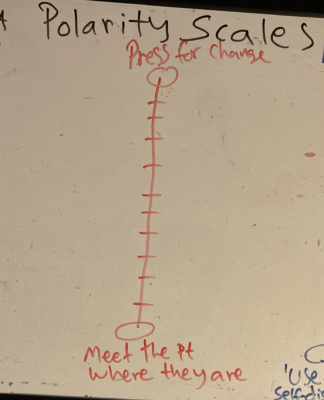When someone you care about is asking for support, it’s not always easy to know how to respond. It can be extremely tough helping loved ones through difficulties when you don’t have the words. Often times we end up staying in the upset feelings with them because we’re taught that identifying the hurt and connecting with the pain will help them see we understand, and in turn feel better. At other times we can say the wrong thing on accident by re-directing the awkward silence to something less painful; but this can backfire because then it looks like we don’t care at all. So how can you help someone when they are upset?
Validate the feeling, not the situation. If they are scared, upset, or angry, validate the fact that it is a normal thing for anyone to feel when they are in that situation. If you focus on the situation instead, you might find it leads more to the following statement.
Avoid sitting in the situation. If you continue to talk about the situation, focus on the difficulty you’re also having, or how you had the same experience, it can make the person feel more helpless. Ever heard of the term “misery loves company”? You’re commiserating at this point, which can have it’s place if that is on both of your agendas. But if the person is just wanting support, this can have the opposite effect you’re looking for.
Highlight their strengths. Believe that they will be able to figure it out. Identify a time when they have gotten through a rough situation before. This can not only be empowering, but encouraging. It helps the person see that they are capable, which lifts their spirits and gets them out of feeling helpless.
Avoid giving unwanted advice. You obviously care about this person, otherwise you wouldn’t be giving them your time. If they ask for your advice, go ahead and give it to them. However, we tend to give it to people when they aren’t asking because we want to help. Sometimes just listening to them or sitting next to them in silence is enough because they can see they aren’t alone.
Now that you have a better idea of what to do when you don’t know what to do, just be aware. It’s really hard to stop what we are used to doing. If you notice what you are doing, it makes it easier to change it. It won’t be perfect the first time – so give yourself a break. As long as you are trying, that’s all your loved one can ask for.


 I am a licensed marriage and family therapist, and I enjoy supporting people in finding solutions to everyday problems. I work with people of all ages that struggle with social skills, are affected by addiction, and have suffered trauma/loss. My areas of interest include cognitive behavioral therapy, self esteem building, improved communication in relationships, grief/loss, and more. You can read more about me on my page at: www.alisonsilviuslmft.net
I am a licensed marriage and family therapist, and I enjoy supporting people in finding solutions to everyday problems. I work with people of all ages that struggle with social skills, are affected by addiction, and have suffered trauma/loss. My areas of interest include cognitive behavioral therapy, self esteem building, improved communication in relationships, grief/loss, and more. You can read more about me on my page at: www.alisonsilviuslmft.net


















